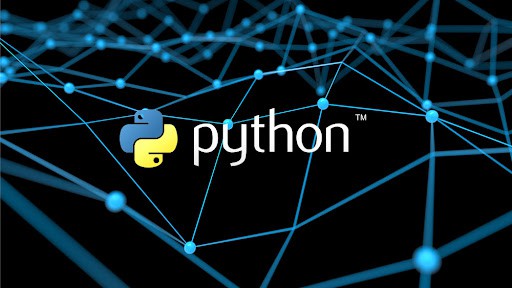Introduction
NFTs, or Non-Fungible Tokens, have taken the digital world by storm, captivating artists, collectors, and investors alike. These unique digital assets have gained significant popularity, with high-profile sales and mainstream media coverage. But what exactly powers this trend? The answer lies in blockchain technology, the underlying infrastructure that enables NFTs to thrive. In this article, we delve into the intricacies of blockchain technology, its implications for NFTs, and the role of NFT marketplace development companies in this evolving landscape.
Understanding Blockchain Technology
Blockchain: A Digital Ledger
At its core, blockchain is a decentralized and immutable digital ledger that records transactions across multiple computers or nodes. Unlike traditional centralized systems, blockchain does not rely on a single authority to validate and store data. Instead, it distributes this responsibility among participants, ensuring transparency, security, and trust.
Decentralization and Consensus Mechanisms
Decentralization is a key aspect of blockchain technology. By spreading the ledger across a network of computers, blockchain eliminates the need for a centralized authority, making it resistant to censorship and single points of failure. Consensus mechanisms, such as Proof of Work (PoW) or Proof of Stake (PoS), ensure that all participants agree on the state of the ledger, preventing fraudulent activities and maintaining the integrity of the system.
Smart Contracts: Programmable Transactions
One of the most powerful features of blockchain technology is smart contracts. Smart contracts are self-executing agreements that automatically enforce predefined conditions when certain criteria are met. These programmable transactions enable the creation of complex applications and the automation of processes, eliminating the need for intermediaries and reducing costs.
NFTs: The Intersection of Blockchain and Digital Assets
What are NFTs?
Non-fungible tokens (NFTs) are unique digital assets that exist on the blockchain. Unlike cryptocurrencies such as Bitcoin or Ethereum, which are fungible and interchangeable, each NFT holds distinct characteristics and cannot be replicated. This uniqueness makes NFTs ideal for representing ownership of digital files, including artwork, music, videos, virtual real estate, and more.
Tokenizing the Digital World
NFTs leverage blockchain technology to tokenize digital assets, bringing the benefits of provenance, ownership, and scarcity to the digital realm. By creating a token on the blockchain, artists and content creators can establish verifiable ownership and control over their creations, ensuring that their work is not only protected but also monetizable.
Implications of NFTs
The rise of NFTs has profound implications for various industries. For artists, NFTs offer a new way to monetize their creations, bypassing traditional intermediaries and earning royalties from secondary sales. Collectors and investors can participate in a rapidly growing market, trading and owning unique digital assets. Moreover, NFTs open the doors to new possibilities in gaming, virtual reality, and decentralized finance, transforming the way we interact with digital content.
NFT Marketplace Development Companies: Fueling the NFT Economy
NFT Marketplaces: The Gateway to NFTs
NFT marketplaces serve as the primary platforms for buying, selling, and trading NFTs. These online marketplaces provide a user-friendly interface for artists, collectors, and enthusiasts to discover, showcase, and transact with NFTs. NFT marketplace development companies play a crucial role in creating and maintaining these platforms, ensuring smooth user experiences and secure transactions.
Building NFT Marketplaces
Developing an NFT marketplace requires expertise in blockchain technology, smart contract development, and user interface design. NFT marketplace development companies combine these skills to create intuitive platforms that cater to the unique needs of the NFT ecosystem. From seamless onboarding processes to robust security measures, these companies focus on delivering a user-centric experience while fostering trust among participants.
Driving Innovation and Adoption
NFT marketplace development companies are at the forefront of driving innovation in the NFT space. They constantly explore new features and functionalities to enhance the user experience, such as interactive galleries, auction mechanisms, and social engagement tools. By pushing the boundaries of what is possible, these companies contribute to the widespread adoption of NFTs and the growth of the overall ecosystem.
Examples of NFT marketplaces that have gained popularity
Several NFT marketplaces have gained significant popularity and have become go-to platforms for buying, selling, and trading NFTs. Here are some notable examples:
OpenSea: OpenSea is one of the largest and most well-known NFT marketplaces. It offers a wide range of digital assets, including artwork, collectibles, virtual real estate, and more. OpenSea supports various blockchain networks, including Ethereum, Flow, and Polygon, providing users with a diverse selection of NFTs.
Rarible: Rarible is an Ethereum-based NFT marketplace that allows creators to mint and sell their NFTs. It offers a decentralized and community-driven platform where users can discover unique digital assets and engage in auctions and limited editions.
SuperRare: SuperRare is a curated NFT marketplace focused on digital artwork. It showcases a carefully selected collection of exclusive pieces from artists worldwide. SuperRare emphasizes scarcity and supports artists by enabling them to earn royalties from secondary sales.
NBA Top Shot: NBA Top Shot is a unique NFT marketplace developed in collaboration with the National Basketball Association (NBA) and Dapper Labs. It offers officially licensed NBA collectible moments in the form of NFTs, allowing fans to own and trade highlights from their favorite players.
Binance NFT Marketplace: Binance, one of the leading cryptocurrency exchanges, has also entered the NFT space with its marketplace. Binance NFT Marketplace provides a platform for artists, creators, and collectors to trade digital assets, including artwork, gaming items, and more.
These are just a few examples of the many NFT marketplaces available today. Each platform offers its unique features, user experiences, and supported blockchain networks. As the NFT ecosystem continues to grow, new marketplaces are likely to emerge, providing even more opportunities for artists, collectors, and enthusiasts.
Conclusion
NFTs have emerged as a revolutionary digital asset class, powered by blockchain technology. Through the use of blockchain, NFTs provide artists with unprecedented control over their creations and offer collectors unique ownership experiences. With the help of NFT marketplace development companies, the NFT ecosystem continues to evolve, driving innovation, and expanding opportunities for artists, collectors, and enthusiasts alike. As blockchain technology matures and NFTs find their place in various industries, we can expect exciting developments and new possibilities to emerge.
FAQs
How do NFTs leverage blockchain technology?
NFTs utilize blockchain technology to tokenize and establish ownership of digital assets. By leveraging the decentralized and immutable nature of blockchain, NFTs provide verifiable proof of authenticity and ownership for digital files.
What makes NFTs unique compared to cryptocurrencies?
Unlike cryptocurrencies, which are fungible and interchangeable, NFTs are unique and indivisible. Each NFT holds distinct characteristics and represents ownership of a specific digital asset.
How do NFTs benefit artists and content creators?
NFTs offer artists and content creators a new way to monetize their work. By selling NFTs, they can directly connect with their audience, bypass intermediaries, and earn royalties from secondary sales.
What role do NFT marketplace development companies play?
NFT marketplace development companies build and maintain online platforms where NFTs can be bought, sold, and traded. They ensure smooth user experiences, secure transactions, and drive innovation within the NFT ecosystem.
How are NFT marketplace development companies driving adoption?
NFT marketplace development companies are constantly innovating and introducing new features to enhance the user experience. By creating user-friendly platforms and fostering trust, they contribute to the wider adoption of NFTs among artists, collectors, and enthusiasts.
Web3 Writer and marketer at Blockchain App Factory.
























































































































































































